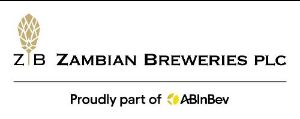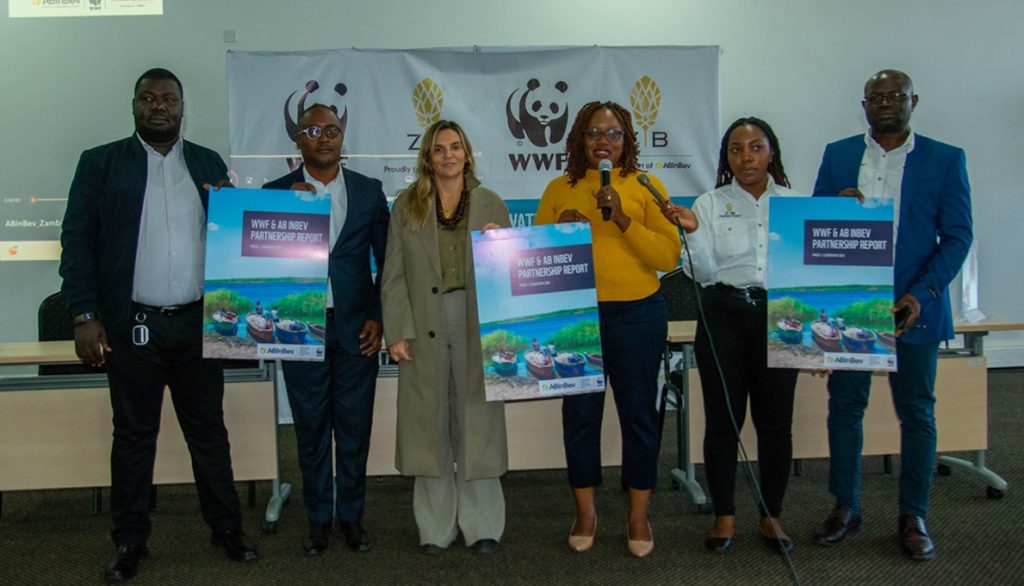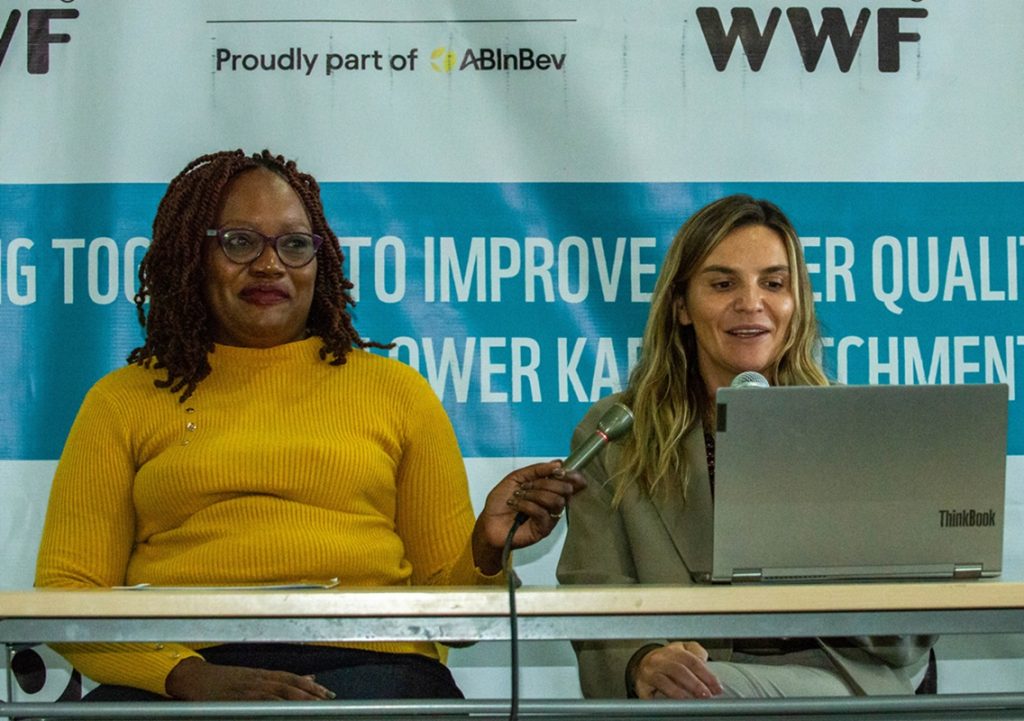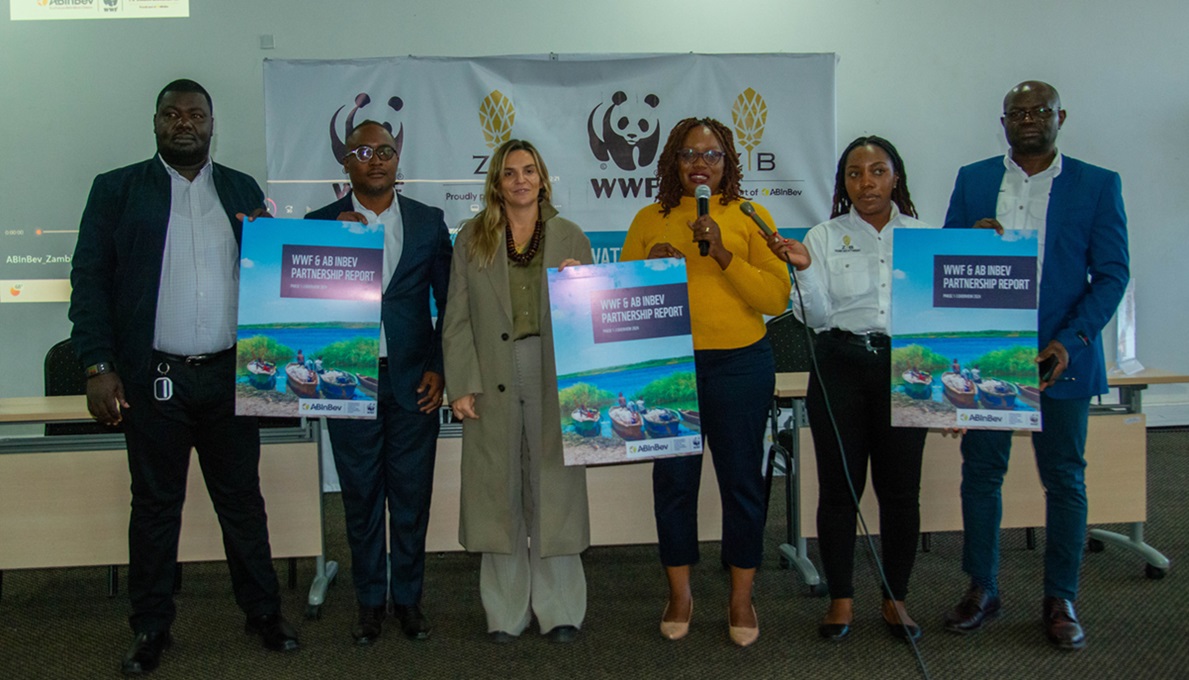
FOR IMMEDIATE RELEASE
WITH PICTURES
AUGUST 26 2024
ZAMBIAN BREWERIES AND WWF ADVANCE EFFORTS TO SAFEGUARD KAFUE BASIN


LUSAKA, ZAMBIA – World Water Week casts a spotlight on the importance of global water resources and the concerns around the protection and preservation of these water bodies.
In Zambia, a report from Zambian Breweries Plc and WWF has revealed deforestation and unsustainable practices to be among the key factors threatening the Kafue Flats ecosystem – one of the nation’s largest and vital water sources.
The brewing company, through its parent company AB InBev, and in collaboration with the World Wide Fund (WWF) for Nature Zambia, launched the WWF|ABI Partnership Report at the Zambia Water Forum and Exhibition (ZAWAFE) Conference in June this year, underscoring the organisations’ commitment to responsible water stewardship and long-term business resilience in an increasingly water-stressed world.
With Zambia’s predicted growth in socio-economic activities in the agricultural and manufacturing sectors, coupled with climate change, the implementation of sustainable environmental and water conservation practices is vital to ensure the preservation of the water system for upstream as well as downstream users; and avert the pollution of surface and underground aquifers has never been more urgent.
Zambian Breweries Country Director Thais Cavinatto reiterated the position saying: “It is imperative to act swiftly in order to preserve the unique Kafue Flats ecosystem. Our work includes a situation analysis study which revealed that deforestation and unsustainable practices pose a threat leading to increased soil erosion.
“Based on these findings, Zambian Breweries Plc has developed a business case for land use practices and water resource management within the agricultural sector and, we are also helping educate the communities and businesses around Mazabuka, Kafue, Monze, Namwala and Itezhi tezhi to make sure it is for the long term,”
Both Zambian Breweries and WWF Zambia believe that corporate water stewardship has the capacity to mitigate shared water risks and to yield shared returns and therefore, partnerships with key stakeholders and government agencies will be vital in achieving a synergetic and beneficial outcome for all, she explained.
WWF Zambia, Country Director Nalucha Nganga-Ziba, emphasised the urgency: “Zambia’s freshwater resources are increasingly under pressure due to a growing population, a developing economy, and the impacts of climate change. The Kafue Basin is at risk, and an unhealthy Kafue Basin poses significant threats to both business and communities. Our partnership with Zambian Breweries aims to identify and implement ambitious solutions to secure the ecosystem services that businesses and communities in the Kafue flats depend on.
“Water risks manifest differently depending upon the specific issues associated with the situation, therefore Industrial players must understand the risks within and outside of their fence if this is to be managed efficiently, equitably and sustainability,” she added.
The Kafue Flats is home to more than 470 species of birds and support 52% of Zambia’s population – including the residents of Lusaka, as a source of food, energy and water as one of the fastest growing cities in the Southern African Development Community (SADC), Lusaka requires a consistent and sustainable supply of water to support livelihoods and long-term economic growth.
Recognising the vital role of this water resource, Zambian Breweries and WWF Zambia embarked on a comprehensive initiative to safeguard the lower Kafue Sub- Basin in 2018, in a bid to secure improved water quantity and quality with key interventions focused on research, farmer-managed natural regeneration, forestry, assisted natural regeneration, and soil and water conservation. Phase 1 of the Water Stewardship project involved a situation analysis study that assessed socio-economic and climate change factors in the basin and recommended measures to address key water risks. Among the threats identified were uncontrolled development, unplanned settlements and inadequate town planning, poor regulation, over exploration and exposure to pollution.
Phase 2 saw to the implementation of the resulting recommendations.
Now in its third phase to run into 2025, the partnership aims to enhance the resilience and productivity of the landscape in the Kafue region, particularly in Namwala, Monze, and Mazabuka districts. Efforts will prioritize improving water quality (within the Ambient standards for the basin) and quantity (20 ML), supported by diversified sustainable livelihoods and investments. Zambian Breweries’ pilot projects focused on improving farming practices in the Mazabuka district have already attracted 208 farmers, demonstrating significant community engagement and impact.
The declaration of the drought as a state of disaster by President Hakainde Hichilema, has further cast a spotlight on the urgency of improving water security in the country.
The WWF|ABI partnership between the world’s largest brewing company and the largest conservation organization reflects a robust commitment to environmental sustainability and water stewardship. It emphasises the need for industrial players to understand and manage water risks both within and beyond their operations. This approach aligns with the principles of corporate water stewardship, fostering innovative partnerships to address shared water challenges.
The initiatives’ undertakings, among others, include rigorous monitoring and research activities to assess the impact of restoration efforts and inform adaptive management strategies such as gathering data on water quality through citizen science, biodiversity, and community well-being.
The Ministry of Water Development and Sanitation, which is responsible for the development and management of water resources, provision of clean water supply and adequate sanitation in the country, termed the partnership between WWF Zambia and AB InBev on Water Resource Management as essential for sustainable national development and called upon other stakeholders to come together and properly manage Zambia’s water resources.
-Ends-
About Zambian Breweries
Zambian Breweries Plc is part of Anheuser-Busch InBev (AB InBev), the largest brewer in the world, with more than 500 beer brands and some 200,000 employees in over 50 countries. It is also one of the world’s largest bottlers of soft drinks.
Zambian Breweries was established in Zambia in 1968 and its product range has grown to include clear beers such as Mosi Premium Lager, Mosi Light, Castle, Carling Black Label, Eagle, Stella Artois, and Budweiser.
For media inquiries please contact
Gillian Langmead at Langmead & Baker Ltd
+260 979 060705
info@langmead.com

